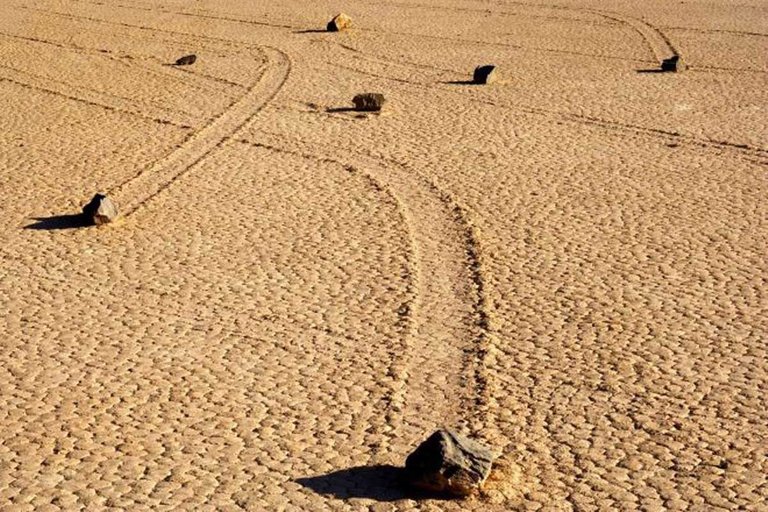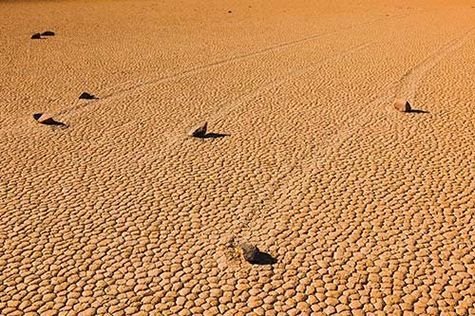
After more than 70 years of repeated efforts to explain the geological phenomenon, the answer appears to have been found thanks to a dedicated research team and bizarrely Tupperware.
The mysterious stones appear to move across the dried lake bed referred to as the racetrack playa located in California’s Death Valley National Park leaving a distinct trail behind them. The mystery that surrounds these stones is present for many reasons, firstly, some of the stones weigh over 300kg meaning it would take a substantial force to move them. Secondly, the trails, some of which are as long as 820 feet, form graceful curves, whilst others create straight lines then an abrupt shift to the left or right, which has baffled researchers.
The cause of the movement has previously been blamed on the wind, pranksters, magnetic fields and even aliens and because no one has ever seen the stones move the true cause has remained a mystery. The answer came thanks to Ralph Lorenz a NASA scientist who started investigating the death valley in a bid to compare the conditions there to those present near Ontario Lacus, a vast hydrocarbon lake on Titan, a moon of Saturn. Whilst working in the national park Lorenz became intrigued by the sailing stones and endeavoured to solve the mystery of them.
To do this he used the common household wonder product Tupperware. “I took a small rock and put it in a piece of Tupperware, and filled it with water so there was an inch of water with a bit of the rock sticking out,” Lorenz told Smithsonian.com. After he placed his creation in the freezer he had a slab of ice with the rock protruding from its surface. He then covered the bottom of a tray with sand and then covered the sand with water. The final step was to place the ice slab on the tray and blow gently on the rock, by doing so the rock moved across the water scraping a trail into the sand below.
This simple experiment translates into the real world in the following sequence of events. First, the playa fills with water, which must be both deep enough to form floating ice during cold winter nights and shallow enough to expose the stones. During the night when temperatures fall the pond freezes to form thin but strong sheets of ice. On sunny days, the ice thaws and breaks up into large floating panels. Light wind drives these across the playa, pushing rocks in front of them and leaving trails in the soft mud below the surface.
Hi! I am a robot. I just upvoted you! I found similar content that readers might be interested in:
https://geologyhubblog.wordpress.com/2018/02/14/the-mystery-of-the-death-valley-sailing-stones-revealed/